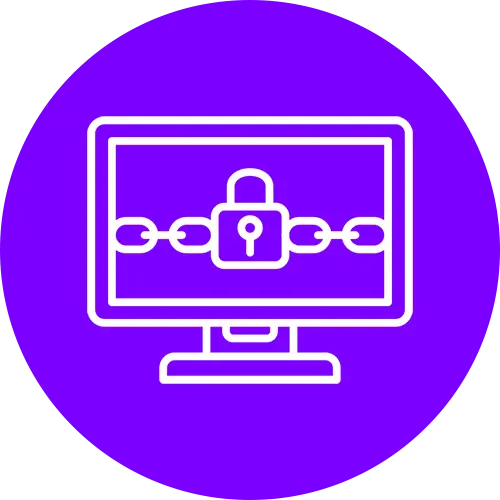HIPAA
What is HIPAA Assessment ?
HIPAA compliance is a fundamental aspect of the Health Insurance Portability and Accountability Act of 1996 (HIPAA), a federal law mainly focused on protecting sensitive patient health information from being disclosed without the patient’s consent or knowledge. The law provides baseline privacy and security standards for the medical information of US citizens.

The standard is applicable to covered entities and their business associates like health care clearinghouses, employer sponsored health plans, health insurers, and medical service providers that engage in certain transactions that involve digital transmission of patient health information (PHI)
HIPAA Regulation divided into Security Rule, Privacy Rule, Transactions and Code Sets (TCS) Rule, Unique Identifiers Rule, Breach Notification Rule, Omnibus Final Rule. HIPAA Security Rule requires implementation of 1) Administrative, 2) Physical, and 3) Technical safeguards.In Addition, it imposes other organizational requirements and a need to document processes analogous to the HIPAA Privacy Rule.
Excellicore, explains the failure to provide a “specific risk analysis methodology” is due to Covered Entities and Business Associates being of different sizes, capabilities and complexity. As per OCR, the key objectives of a HIPAA risk assessment are :
Identify the PHI that your organization creates, receives, stores and transmits including PHI shared with consultants, vendors and Business Associates.
Identify the human, natural and environmental threats to the integrity of PHI human threats including those which are both intentional and unintentional.
Assess what measures are in place to protect against threats to the integrity of PHI, and the likelihood of a “reasonably anticipated” breach occurring.
Determine the potential impact of a PHI breach and assign each potential occurrence a risk level based on the average of the assigned likelihood and impact levels.
Document the findings and implement measures, procedures and policies where necessary to tick the boxes on the HIPAA compliance checklist and ensure HIPAA compliance.
HIPAA risk assessment, the rationale for the measures, procedures and policies subsequently implemented, and all policy documents must be kept for a minimum of six years.
HIPAA Assessment Approach
Excellicore follows a well-documented approach to work alongside our clients aiding them in attaining their compliance goals. This require a Well-documented execution plan along with defined milestones.

Business Understanding
Evaluating business process and environment to understand the in-scope elements

HIPAA Scope Finalization
Finalize the scope elements and prepare the requirement documentation

HIPAA Readiness Assessment
Identify the potential challenges that might arise during requirement implementation

HIPAA Risk Assessment
Identifying and analysing the risks in the information security posture.

HIPAA Data Flow Assessment
Conducting thorough systems analysis to evaluate data flow and possible leakages

HIPPA Documentation Support
Assist you with list of policy and procedure to help you in validation or evidence collection

HIPAA Remediation Support
Support you by recommending solutions to compliance challenges

HIPAA Awareness Training
Conduct awareness sessions for your Team and personnel involved in the scope

Data and Asset Classification
Identify critical vulnerabilities in your system with a robust testing approach

HIPAA Evidence Review
Review of the evidence collected to assess their maturity, in line with the compliance

Final Assessment and Attestation
Post successful assessment, we get you attested for compliance with our audit team

Continuous Compliance Support
Support you in maintaining compliance by providing guidelines
FAQ'S
Maintaining compliance with the Health Insurance Portability and Accountability Act (HIPAA) is essential for any organization that handles protected health information (PHI). Some steps that organizations can take to maintain HIPAA compliance include Conducting regular risk assessments, Implementing technical and administrative safeguards, Maintaining physical security, Conducting regular employee training, Conducting regular audits and monitoring and Maintain documentation
Fines can be up to $250,000 for violations or imprisonment up to 10 years for knowing abuse or misuse of individual health information.
Information collected from an individual by a covered entity that relates to the past, present or future health or condition of an individual and that either identifies the individual or there is basis to believe that the information can be used to identify, locate, or contact the individual…and thus must be protected. PHI is a subset of PII.
Any healthcare entity that electronically processes, stores, transmits, or receives medical records, claims or remittances.
HIPAA Privacy Rule addresses appropriate PHI use and disclosure practices by healthcare organizations. The same rules, regulations and policies that regulate Privacy do not necessarily extend to the Security Rule. The HIPAA Security Rule revolves around safeguarding the systems that house or transmit PHI.
Every individual (office manager, doctor, etc.) is held responsible for health information they should, can, or do access. Individuals and companies can independently face criminal charges for mishandling PHI.
